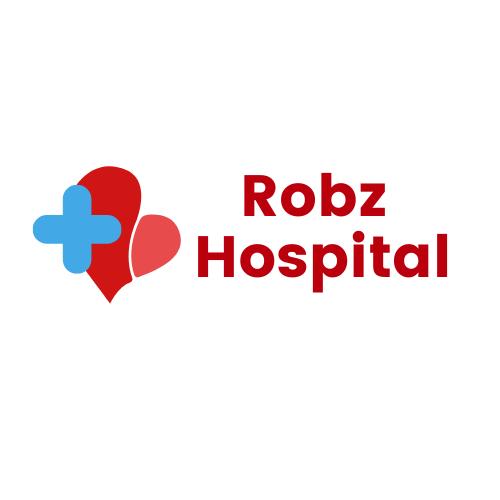
In today’s healthcare landscape, the provision of 24/7 emergency health services is crucial in ensuring the best possible outcomes for critical care patients. Understanding the concept of round-the-clock availability in healthcare is paramount to appreciating the impact it has on patient care. Additionally, the infrastructure required for such services, the challenges faced in providing them, and the future of emergency care are all factors that contribute to the importance of 24/7 emergency health services.
Understanding the Concept of 24/7 Emergency Health Services
When we talk about 24/7 emergency health services, we refer to the ability of healthcare facilities to provide immediate medical attention to patients in critical condition at any given time. This means that specialized medical professionals and the necessary equipment are available round-the-clock to handle emergencies, ensuring that patients receive timely and life-saving interventions.
Moreover, the concept of 24/7 emergency health services extends beyond just physical healthcare facilities. In today’s digital age, telemedicine and virtual health platforms have also started offering round-the-clock emergency medical consultations. Patients can now access medical advice and assistance remotely, further enhancing the reach and efficiency of emergency healthcare services.
Defining Emergency Health Services
Emergency health services encompass a range of acute care interventions provided in response to sudden and life-threatening situations. These can include life-saving measures such as resuscitation, stabilization, and initial assessment of a critical patient.
Furthermore, emergency health services are not limited to hospitals and clinics. First responders, including paramedics and emergency medical technicians, play a crucial role in providing initial emergency care on-site or during transportation to a healthcare facility. Their swift actions and medical expertise often make a significant difference in the outcomes of critical situations.
The Role of 24/7 Availability in Healthcare
The availability of round-the-clock emergency health services plays a vital role in critical care treatment. Time is of the essence in many emergency situations, and every second counts. By having healthcare professionals readily accessible at all times, patients can receive immediate medical attention, increasing their chances of survival and minimizing long-term complications.
Moreover, the seamless coordination between emergency health services and other healthcare departments is essential for providing comprehensive and continuous care to patients. From emergency room staff to intensive care units, a well-coordinated healthcare system ensures smooth transitions for patients requiring ongoing critical care, further emphasizing the importance of 24/7 availability in healthcare.
The Impact of Immediate Medical Attention on Critical Care Outcomes

Immediate medical attention has a significant impact on critical care outcomes. This is particularly evident in the concept known as the “Golden Hour.” During this critical period, the prompt administration of appropriate interventions can significantly influence patient outcomes.
Furthermore, the importance of immediate medical attention extends beyond just the initial hour of critical care. Continual monitoring and timely adjustments to treatment plans play a crucial role in ensuring positive patient outcomes. Healthcare providers must remain vigilant and responsive throughout the entire duration of critical care to address any unforeseen complications promptly.
The Golden Hour: Timing in Critical Care
The Golden Hour refers to the first hour following a critical illness, trauma, or emergency, during which timely medical intervention can immensely improve the patient’s chances of survival. It is during this period that the benefits of 24/7 emergency health services become most evident and life-saving.
In addition to the immediate physical interventions during the Golden Hour, the psychological impact of timely care cannot be understated. Patients and their families experience reduced anxiety and increased trust in the healthcare system when they receive prompt and efficient medical attention during critical moments.
The Consequences of Delayed Medical Intervention
On the contrary, delayed medical intervention in critical care can have severe consequences. Even a few minutes of delay can lead to irreparable damage or, in some cases, loss of life. 24/7 emergency health services address this issue by ensuring that healthcare professionals are readily available, reducing the risk of delayed care.
Moreover, delayed medical intervention can also result in prolonged hospital stays, increased healthcare costs, and long-term complications for patients. By highlighting the negative impacts of delayed care, healthcare systems are motivated to prioritize swift and efficient responses to critical situations, ultimately benefiting patient outcomes and overall healthcare quality.
The Infrastructure Required for 24/7 Emergency Services
Providing 24/7 emergency health services requires robust infrastructure that supports round-the-clock care. This includes adequate staffing levels, specialized equipment, and suitable facilities to cater to patients in critical condition.
Ensuring the seamless operation of 24/7 emergency services involves a well-coordinated team of healthcare professionals working in shifts around the clock. This team includes not only doctors and nurses but also paramedics, technicians, and administrative staff who play a crucial role in ensuring timely and effective care for patients in need.
Staffing for Round-the-Clock Care
Ensuring appropriate staffing is crucial for 24/7 emergency health services. This involves having a sufficient number of trained healthcare professionals, such as doctors, nurses, and support staff, available to respond to emergencies at any time of the day or night.
Moreover, maintaining a high level of expertise among the staff is essential for handling a wide range of medical emergencies efficiently. Continuous training, simulation exercises, and staying updated on the latest medical advancements are key components in ensuring that the healthcare team is well-prepared to deliver quality care at all times.
Necessary Equipment and Facilities
In addition to staffing, having the necessary equipment and facilities in place is essential for round-the-clock emergency services. This includes access to advanced life support equipment, critical care units, and emergency rooms equipped to handle a diverse range of medical emergencies.
Furthermore, having a well-equipped ambulance service is vital for ensuring the swift and safe transportation of patients to the healthcare facility. Ambulances stocked with life-saving equipment and staffed with trained paramedics can make a significant difference in the outcomes of emergency cases, especially those requiring immediate medical intervention en route to the hospital.
The Challenges in Providing 24/7 Emergency Health Services
While the importance of 24/7 emergency health services cannot be overstated, there are several challenges that healthcare providers face in delivering round-the-clock care.
One significant challenge in providing 24/7 emergency health services is the need for constant vigilance and readiness. Healthcare institutions must ensure that their facilities are always prepared to handle any medical emergency that comes through their doors. This requires ongoing training for staff, regular maintenance of equipment, and robust emergency protocols to guarantee swift and effective care at any hour of the day.
Financial Implications
Providing 24/7 emergency health services can be financially demanding for healthcare institutions. The cost of staffing, equipment, and facilities necessary for round-the-clock care can place a burden on healthcare budgets. However, the potential lifesaving impact and improved patient outcomes often outweigh these financial concerns.
Moreover, investments in technology and infrastructure are crucial for maintaining high-quality emergency services. From advanced life support systems to state-of-the-art diagnostic tools, healthcare providers must continually upgrade their resources to meet the evolving needs of emergency care. These investments not only enhance patient outcomes but also contribute to the overall efficiency and effectiveness of the healthcare system.
Workforce Management and Burnout
Sustaining a workforce capable of providing 24/7 emergency health services can be challenging. Healthcare professionals working in these demanding roles may experience higher levels of stress and burnout due to irregular schedules and the pressure of handling critical situations. Implementing effective workforce management strategies and providing support to healthcare providers can help mitigate these challenges.
Furthermore, fostering a culture of teamwork and resilience among emergency healthcare staff is essential for maintaining morale and preventing burnout. Peer support programs, mental health resources, and regular debriefing sessions after intense cases can all contribute to a healthier and more sustainable work environment in emergency care settings.
The Future of 24/7 Emergency Health Services
As technology continues to advance and healthcare policies evolve, the future of 24/7 emergency health services looks promising. Technological innovations are driving improvements in emergency care, while policy changes aim to enhance access and quality of emergency services.
Technological Innovations in Emergency Care
Advancements in technology, such as telemedicine and remote monitoring, are revolutionizing emergency care. These innovations enable healthcare professionals to provide timely consultations and interventions, even in remote or underserved areas. For example, telemedicine allows doctors to remotely assess patients’ conditions through video consultations, providing critical advice and guidance before they arrive at the emergency room.
Furthermore, the integration of artificial intelligence and data analytics is transforming emergency care decision-making. By analyzing vast amounts of patient data, AI algorithms can help identify patterns and predict potential emergencies before they occur. This proactive approach allows healthcare providers to intervene earlier, potentially preventing life-threatening situations.
Policy Changes and Their Impact on Emergency Services
Governments and healthcare organizations are recognizing the importance of 24/7 emergency health services and implementing policies to support their provision. These policy changes focus on increasing access to emergency care, improving response times, and strengthening coordination between healthcare providers and emergency services.
One example of a policy change is the implementation of centralized emergency response systems. These systems aim to streamline communication between emergency medical services, hospitals, and other healthcare facilities. By centralizing the coordination efforts, response times can be significantly reduced, ensuring that patients receive timely and appropriate care.
Additionally, policies are being put in place to address the shortage of emergency care professionals. This includes initiatives to attract and retain skilled emergency physicians, nurses, and paramedics. By investing in the workforce, emergency services can maintain high-quality care and ensure that there are enough healthcare professionals available to respond to emergencies at any time.
In conclusion, the importance of 24/7 emergency health services in critical care treatment cannot be overstated. Immediate medical attention has a profound impact on patient outcomes, and the availability of round-the-clock emergency services is crucial in ensuring timely interventions. The infrastructure required for these services, as well as the challenges faced in providing them, must be addressed to sustain and enhance the provision of emergency care. Moreover, advancements in technology and policy changes hold promising prospects for the future of 24/7 emergency health services.




